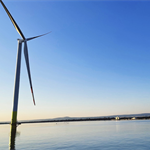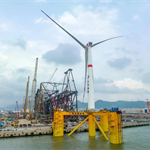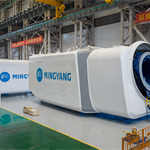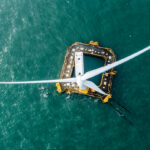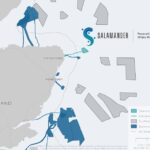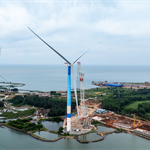MingYang continues European expansion with UK floating offshore wind deal
Energy Disrupter
TwinHub is due to be the first offshore wind project in the Celtic Sea and the first floating project to receive a contract for difference (CfD) in the UK.
It was awarded a CfD for 15-years of revenue support from the UK government’s latest tender round in July.
It is also MingYang’s first contract for an offshore wind farm in the UK. Hexicon said that, in addition to being its preferred supplier, it had also awarded MingYang the contract to design and engineer the project.
Innovation
The TwinHub project will use Hexicon’s ‘TwinWind’ floating foundation technology, which will allow two MingYang MySE 8.0-180 turbines to be placed on a single foundation.
Hexicon said the design would allow more energy to be generated from a smaller area and would reduce the environmental impact compared with a single foundation.
The 32MW project will be deployed within the ‘Wave Hub’ demonstration site, 25km off the coast of Hayle in Cornwall, in waters up to 60 metres deep. It will be anchored by a single-point mooring known as a catenary system.
It is expected to be commissioned by 2027 at the latest and will connect to existing subsea cable which run to an onshore substation in Hayle.
European expansion
The deal represents MingYang’s first contract for an offshore wind farm in the UK.
In July, the Chinese turbine manufacturer attempted to raise $706.9 million by listing on the London Stock Exchange in a bid to boost its manufacturing and research and development capabilities and expand internationally, although it fell around $50m short of its target.
MingYang’s is one of the few Chinese OEMs to expand internationally, with rumours of a planned factory in Germany. It supplied turbines for Italy’s first offshore wind farm and signed a memorandum of understanding with the UK government last autumn to invest in blade-manufacturing and turbine assembly factories as part of a move into the UK offshore market.
Hexicon said the TwinHub project was working with the local supply chain and hoped to act as a “catalyst” for the bringing the economic benefits of offshore wind to the region. This would include Cornwall’s Falmouth Port which the company said had the “potential” to play an important role in the project’s development, operation and maintenance.


